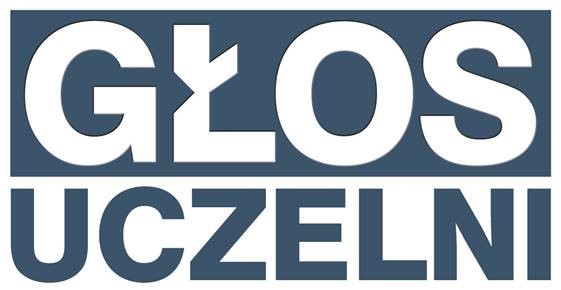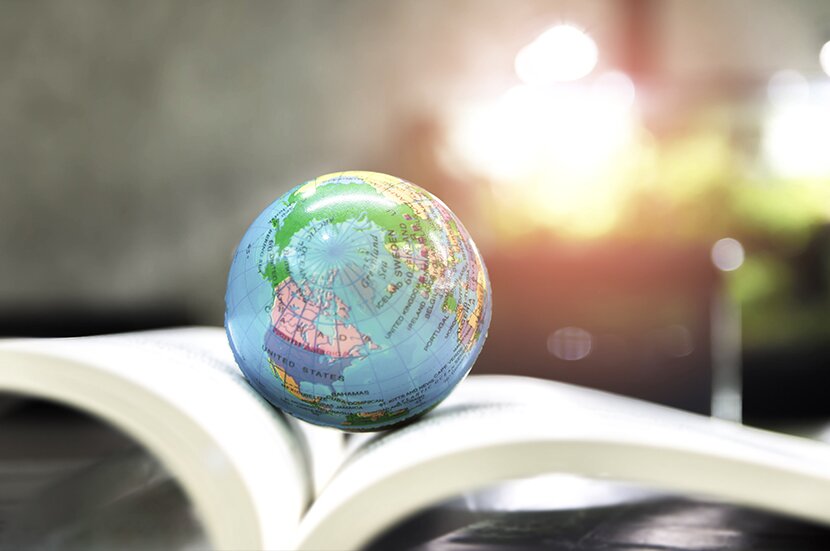
UPWr scientists with Bekker scholarships
Among 135 scientists who received the NAWA scholarship from the Mieczysław Bekker Programme, there are four researchers from the University of Environmental and Life Sciences in Wrocław. These are Paweł Hordyniec, PhD, Małgorzata Jarząbek-Rychard, PhD, Ewa Kozłowska, PhD and prof. Krzysztof Marycz.
In the third edition of the Mieczysław Bekker Programme, the National Agency for Academic Exchange (NAWA) scholarships were received by 135 scientists. Thanks to the scholarships, they will go to foreign research centres in 26 countries. During their stays lasting from 3 to 24 months, they will carry out scientific projects or postdoctoral internships together with foreign scientists and will be developing international cooperation. Most of them will go to the United States, Great Britain and Germany, but there are also those who will visit Denmark, Finland, France, Japan, South Korea, Mexico and New Zealand. The universities where they will conduct research include Oxford University, University of Cambridge, Columbia University in New York, Stanford University, University of Heidelberg, Humboldt University in Berlin, Charles University in Prague, University of Rome "La Sapienza" and Australian University in Queensland.
From the University of Environmental and Life Sciences in Wrocław, Paweł Hordyniec, PhD, Małgorzata Jarząbek-Rychard, PhD, Ewa Kozłowska, PhD and prof. Krzysztof Marycz received the Bekker scholarships.
Paweł Hordyniec will conduct research at the Scripps Oceanographic Institute at the University of California, San Diego. Although this is one of the many internships he has had the pleasure to carry out, a one-year stay in the United States is formally his first postdoctoral fellowship.
- While preparing my doctoral dissertation, I went on a two-year internship to Australia. I had an opportunity to present the results of my scientific teamwork at a conference in Denmark, where I met Professor Jennifer Haase from San Diego, who was looking for a young scientist to cooperate with, says Hordyniec from the Institute of Geodesy and Geoinformatics.
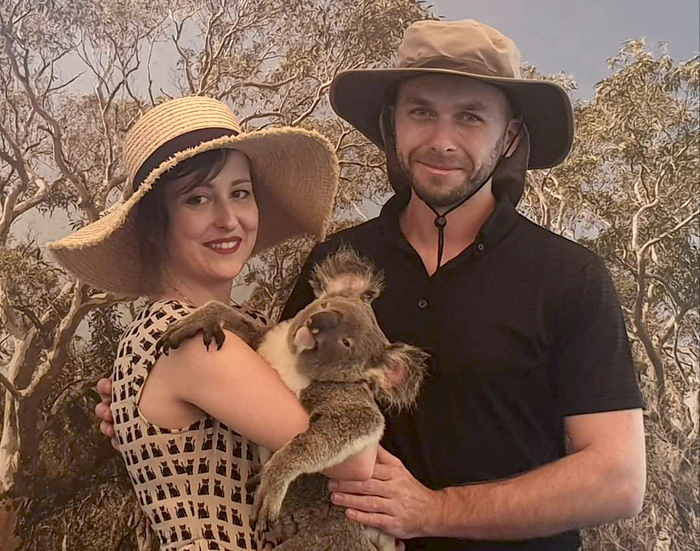
In the group of prof. Haase, the Polish scientist will develop satellite observations using the innovative radio occultation technique, which uses measurements to research planes with GPS transmitters on board.
- Based on the measured delay in the registration of GPS signals, caused by the passage of an electromagnetic wave through the atmosphere, we are able to determine the variability in its vertical distribution. Traditionally, atmospheric soundings have been carried out with the use of meteorological balloons, while for over two decades, profiles have also been determined from observations between a pair of satellites. The basics of this technique were used for the first time during interplanetary flights to study the atmospheres of Venus and Mars. Replacing the satellite with an airplane is another evolution in remote techniques of profiling the Earth's atmosphere – explains Paweł Hordyniec, who does not hide his joy at the trip to the United States (his fiancée, a doctoral student at the Institute of Geodesy and Geoinformatics, is going with him for a year).
Ewa Kozłowska, PhD from the UPWr Department of Chemistry, which famous for its long tradition of biotransformation, i.e. transforming a wide range of chemical compounds using whole cells of bacteria, yeast, filamentous fungi or plants, as well as enzymes obtained from them, has also received a scholarship.
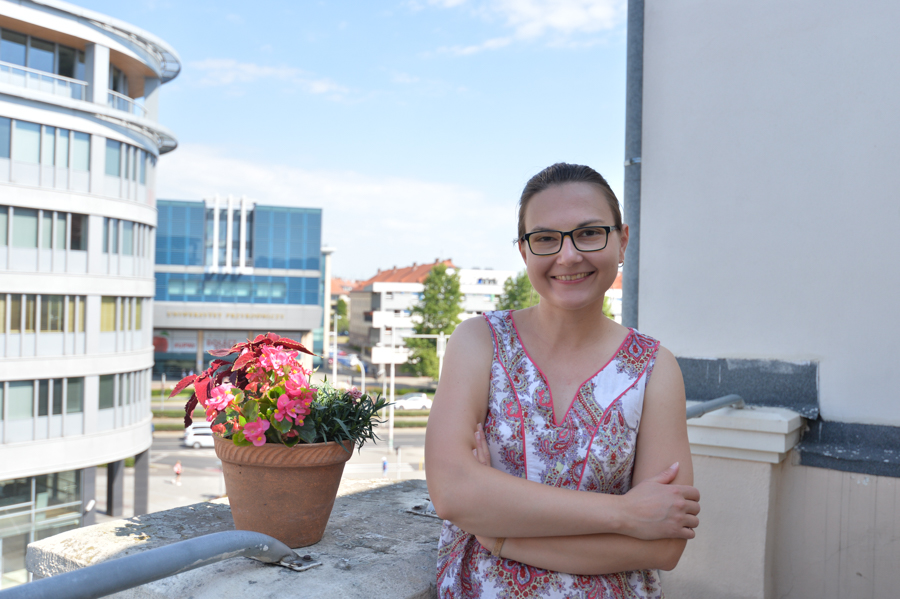
- The multitude of steroidal compounds biotransformation products obtained by us provides a lot of valuable information on the pathways of metabolism of these compounds in living organisms. By modifying the conditions of biotransformation, we are able to improve its efficiency, but we are not able to turn off some enzymatic pathways and "force" microorganisms to efficiently produce only one compound interesting to us – says Kozłowska and adds that scientists can obtain such a compound as a result of a planned pathway of consecutive in vitro enzymatic reactions. Additionally, if the relevant information in the form of genetic information is placed in a bacterial or yeast cell, a ready-made mini-reactor is obtained, which itself produces the necessary enzymes and cofactors, i.e. the tools necessary to modify the structure of the substrate.
- I will study an innovative method of immobilization and activation of enzymes capable of transforming steroid compounds, under the supervision of prof. Elizabeth Gillam at the University of Queensland in Australia during my 18-month stay – adds Ewa Kozłowska.
Another scholarship holder of the Bekker programme is Małgorzata Jarząbek-Rychard, PhD, also associated with the Institute of Geodesy and Geoinformatics. During her two years at the Technische Universität Dresden Institute of Photogrammetry and Remote Sensing, she will develop methods of automatic reconstruction of building interiors for BIM (Building Information Modelling) based on integrated spatial data.
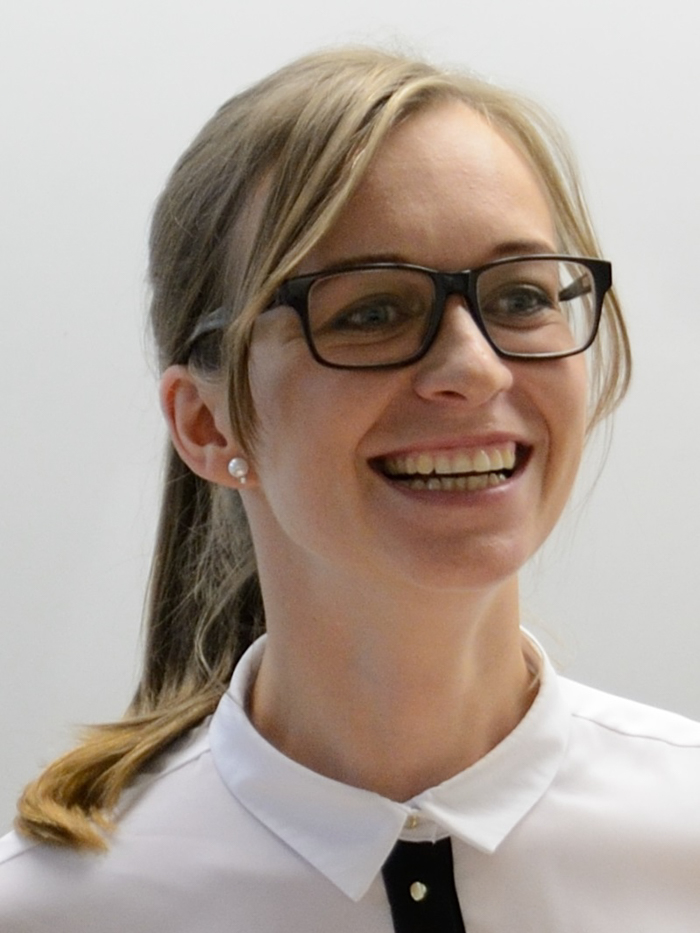
- Building Information Modelling – BIM – is currently a very up-to-date subject of research with a wide variety of applications, such as security systems, monitoring the condition of building structures, or energy consumption analysis. However, to fully use the potential of BIM, a huge amount of information is necessary, which can be provided by modern photogrammetric techniques – explains Jarząbek-Rychard, whose project is based on innovative, automatic model creation, using deep machine learning methods and the integration of spatial data including laser point cloud scanning, thermographic imaging and photogrammetric photos.
- The expected result of my research is to develop algorithms for comprehensive modelling of building interiors, going beyond the visual aspects of 3D reconstruction and meeting the standards of complex BIM applications – adds Małgorzata Jarząbek-Rychard.
The fourth awarded scientist is prof. Krzysztof Marycz. The head of the Department of Experimental Biology will go to the USA – to the University of California in Davis.
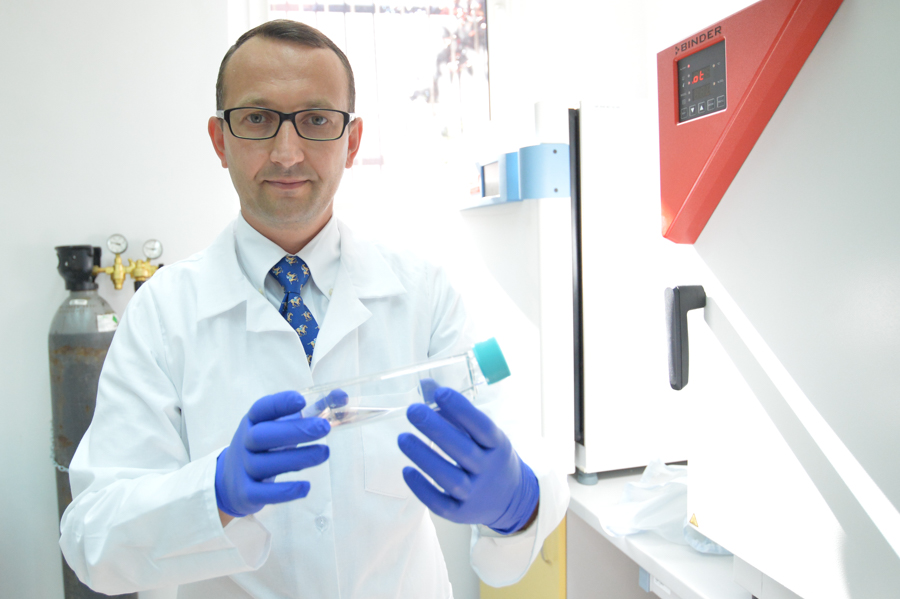
- As part of the scholarship at UC DAVIS, I will work on an innovative therapy for the treatment of osteoarthritis in horses. Last year, as a visiting professor at Stanford, I gave a lecture proposing a completely new approach to the treatment of osteoarthritis not only in horses but also in humans. Then I was invited by the best researchers at UC DAVIS to give a lecture on the subject. The idea developed at my Department gained recognition overseas – says prof. Krzysztof Marycz.
The head of the Department of Experimental Biology, in addition to the Bekker scholarship, wrote a joint grant with colleagues from UC DAVIS, which was regarded as ground-breaking by American reviewers and received funding.
- My pupil, Dr. Katarzyna Kornicka-Garbowska, who will join me in the summer thanks to the support of WZB, will also participate in this grant. This is our great success. For many years, UC DAVIS has been the best veterinary university in the world, and to the best of my knowledge, so far no Polish person has ever managed a grant at this university. Since we are in the process of patenting the solution developed by us, I will reveal more details after my return – says prof. Krzysztof Marycz.
kbk

